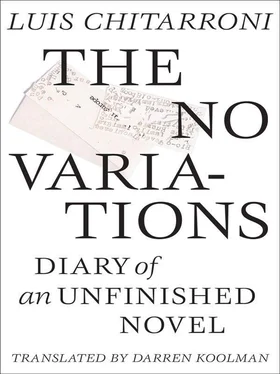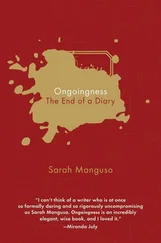I understand the resistance — the animosity — of readers and critics to texts that are conceived and arranged by tendentious principles. But just as the reference to Ph. Holland in “The Aleph” is a clue to be pursued, there is nothing in Argentine fiction to indicate where to go next, it is at an impasse: of mere storytelling, straightforward narrating, having lost sight of that profundity of vision that inclines one to the implicit, to allusion, elusion, paraphrase, and veiled quotation.
If literature is strengthened by its referential commitment (if we love Latin literature because it is derived from Greek literature, if Spanish and English literature occasionally surprises us with profound evocations, invocations of other literatures that informed them), El Carapálida presented, according to the author’s plan, a practical dilemma (practical because it offered two modes of inquiry) between the carelessly written potboiler and the Thomas Mann approach (profundity, difficulty, their consequences …)
The two masters were leading the pack: Ricardo Neira and César Quaglia.
In contrast to the weight of those initial sesquipedalian surnames — Beaumarchais, Bauvebrouillard — the pungent brevity of the biforked: Piglia, Aira.
NO
There was something evasive, annoying about Inés Maspero. Firstly, her protrusive eyes — that askant gaze — secondly, her mismatched teeth (the left incisor broken on the right side), thirdly, her taking care to always maintain a standard of inelegance, fourthly, the coarseness of her knees, and lastly [definitively], her bad manners. When Inés Maspero opened a packet of cigarettes, it was like watching a ravenous lioness quarter an antelope [Ogden Nash, in “Dead Aunt’s Diary”].
Spanish translation
Foreground anything to do with taste (other poem of Ogden Nash), if there is anything.
NOt found. The account:
The poem says a gourmet challenged him — O.N.’s “lyrical him”—to eat, god help us, a piece of rattlesnake meat, assuring him that it would taste like chicken.
And O.N. (or the “lyrical O.N.”) ate it. Now he (“the lyrical he”) says he can no longer eat chicken since it reminds him too much of rattlesnake meat.
Lead with the poem which has a part called “question of taste.”
Inés Maspero was the kind of person no one imagined [being in love] falling in love, the kind of person with whom no one had wanted to fall in love, the kind of person with whom everyone fell in love. One morning, or perhaps it wasn’t the morning, at least one person discovered they were not in love with her.
Or was it she who believed this and so everyone around her was led to believe it too?
If there were reasons, some were perhaps of her own making — with the rabid elegance of an Egon Schiele, who for a time completely forgot about the love angle, the rectilinear lines of the Viennese baroque, its serpentine effect. It couldn’t have been because of Nicasio’s influence, because no one knew he was the second person that didn’t love her. The truth is, it was a long process that clearly entailed some psychological manipulation, but which also needed a little magic — the elusive and unhappy process described in “Returns”—at the end of which the insignificant skivvy of the reception desk had become — by the intervention of her Pygmalion and Svengali — Eloísa Betelgeuz[s]e, the inspirational muse of The Place of Apparitions and inspired poet of Chrysalid Simulation .
Inés Maspero ( ci-devant Eloísa Betelgeuse), who died in a variety of ways, all of them tragic, all anthologized in at least four stories in this book, died by accident (as one of the survivors liked to stress to the protagonist’s father), after ingesting alcohol, a lot of alcohol and medication (since she never referred to them by name), more than likely — according to a reliable witness [Dos] — an un-prescribed and dangerously high dose of Tryptizol (the suicide hypothesis should be discarded for the sake of a reasonable alternative …)
It was a dimly-lit apartment Nicasio Urlihrt hadn’t helped her choose and which, according to a letter by a frequent visitor (Dos, a member of Agraphia ’s second committee), was like “a cave made for a pygmy who obsesses over Jackson Pollock monochromes.” The stuff that was shedding from the walls is called skip trowel . And indeed, whoever visited would have shared the letter writer’s sentiments. Even those who spent an evening with the intensely private couple, playing those domestic games Nicasio — despite appearances — particularly enjoyed, would soon begin to miss their own hearth in the grim atmosphere. After the first death, there is no other .
Eduardo Manjares described Nicasio Urlihrt’s curiosity in women using the adjective “proboscidal” [in …?]. The zoological term is apt for a man with a large nose, corpulent frame, premature wrinkles, and a clumsy gait. This should be of concern to us because Manjares, who was passing through Buenos Aires, was guilty of an attempt at courteous dissuasion, citing Proust: “Let us leave the beautiful women to men of no imagination.” Nurlihrt, who was good with a riposte, and imaginative (or perhaps just in love), twice emended the citation with the intention of improving it, first saying: “Let us leave the imagination to men undistracted by pretty women”; and then: “Let us leave pathetic theories to men of tragic nature.” Oliverio, Felipe, and someone else were also present.
A few ideas in stories already written (I’m not surprised by the notion that stories aren’t just motivated by ideas: Mallarmé to … Degas?). In “Early,” the first thought in the morning doesn’t correspond with the last one at night (Urlihrt’s program against random ideas). In “The Imitation,” we understand time by the substantive construction of history, not by looking at the clock (whatever that means). Nothing is understood plainly, needs elaboration, explanation. When the crystalline fails us, use the humectant and adhesive capacities of reasoning.
“The division of one day from the next must be one of the most profound peculiarities of life on this planet. It is, on the whole, a merciful arrangement. We are not condemned to sustained flights of being, but are constantly refreshed by little holidays from ourselves. We are intermittent creatures, always falling to little ends and rising to little new beginnings. Our soon-tired consciousness is meted out in chapters, and that the world will look quite different tomorrow is, for both our comfort and our discomfort, usually true. How marvelously too night matches sleep, sweet image of it, so neatly apportioned to our need. Angels must wonder at these creatures that fall so regularly out of awareness into fantasm — invested dark. How our frail identities survive these chasms no philosopher has ever been able to explain.”
Iris Murdoch
Scherzo
Elena told me before entering the bathroom about her weakness for bespectacled men, men who don’t wear watches, men who wear neckties. I caught a glimpse of her removing her clothes [balancing herself, climbing into the bath.]
Near the bath was a pile of Nicasio’s magazines. He could hear her body’s dialogue with the water, her sigh of gratitude for its embrace. Twice I left and twice returned to the same place. Elena said children inherit the way their parents sleep, and their way of getting into water. [I furtively got in, got out almost immediately.] I don’t have children. Elena does. It was raining.
Staccato
Books [abandoned] on the floor: Elena had not been a disciplined disciple. Betrayal in Trilce, inconspicuous satellite.
Approaching the windowsill, a German cockroach’s deafening saraband, the silence of the world I didn’t want to hear, didn’t want to hear, didn’t want to hear. Elena already left the bathroom. Her legs to the iliac crest, her eyes closed.
Читать дальше












